- Fellow Highlights
COVID-19: Paul & Daisy Soros Fellows Serving on the Front Lines of Health Care
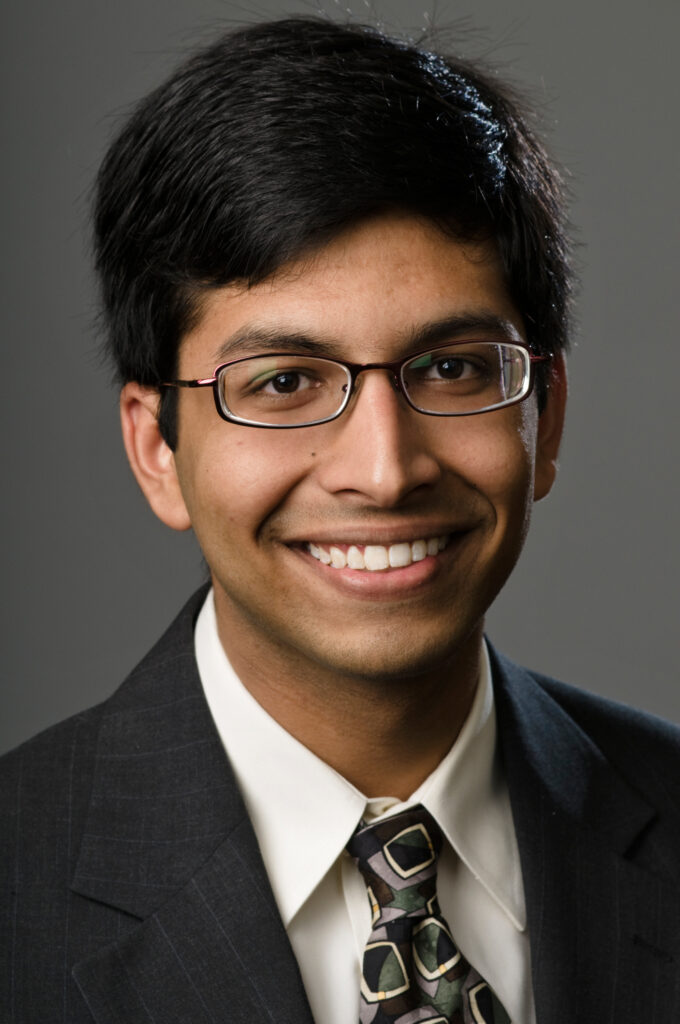
Ashish Agrawal (2009 Fellow), the child of immigrants from India, is an assistant clinical professor of anesthesiology at UCSF, and is based at Zuckerberg San Francisco General Hospital. Clinically, he is providing direct patient care for COVID-19 positive patients as an anesthesiologist and as an intensivist working on COVID-specific ICUs.
“What has struck me through this whole process is how much every single person has been engaged and committed to helping this effort, “Ashish said “Even in San Francisco, with case volumes that have been manageable so far, every faculty member and staff is spending every spare moment thinking, brainstorming, developing protocols, and disseminating recommendations to others in the hospital to try to make everyone’s lives easier and safer. It makes me proud to be part of such a close-knit community.”
Carlos Eduardo Estrada Alamo (2014 Fellow), an MD/MBA graduate of Harvard University and an immigrant from Mexico, is a resident physician in anesthesiology at the Hospital of the University of Pennsylvania in the Department of Anesthesiology & Critical Care. Carlos spent much of March and April on the anesthesia call team at the hospital and has been working night shifts recently. He explained over e-mail, “In the middle of the night last week, as I’m combing through my medication cassette in the operating room, I find myself paralyzed by the sound of the main door swinging open. My pulse quickens. The patient’s COVID status is still unknown, so I’m drowning beneath layers of suffocating gear meant to protect me during the case: a heavy lead apron to guard against X-rays, a splash-proof gown, double gloves, an N95 respirator, and a surgical mask topped off with a plastic eye shield. Reluctant faces stare intently as the unconscious patient is wheeled into the room, his mechanical ventilator trailing closely behind. The anxiety in the room is palpable. Cautious and guarded, we position the patient on the surgical bed. As beads of sweat trickle down my forehead into my eyes, I carefully connect the patient’s breathing tube to my anesthesia machine so I can drive anesthetic gas and air into his lungs. While waiting anxiously for the COVID test result, I pray to soon be freed from the waves of smothering heat. Morning can’t come soon enough.”
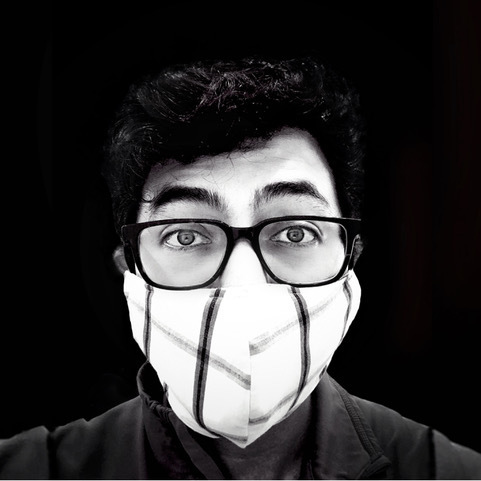
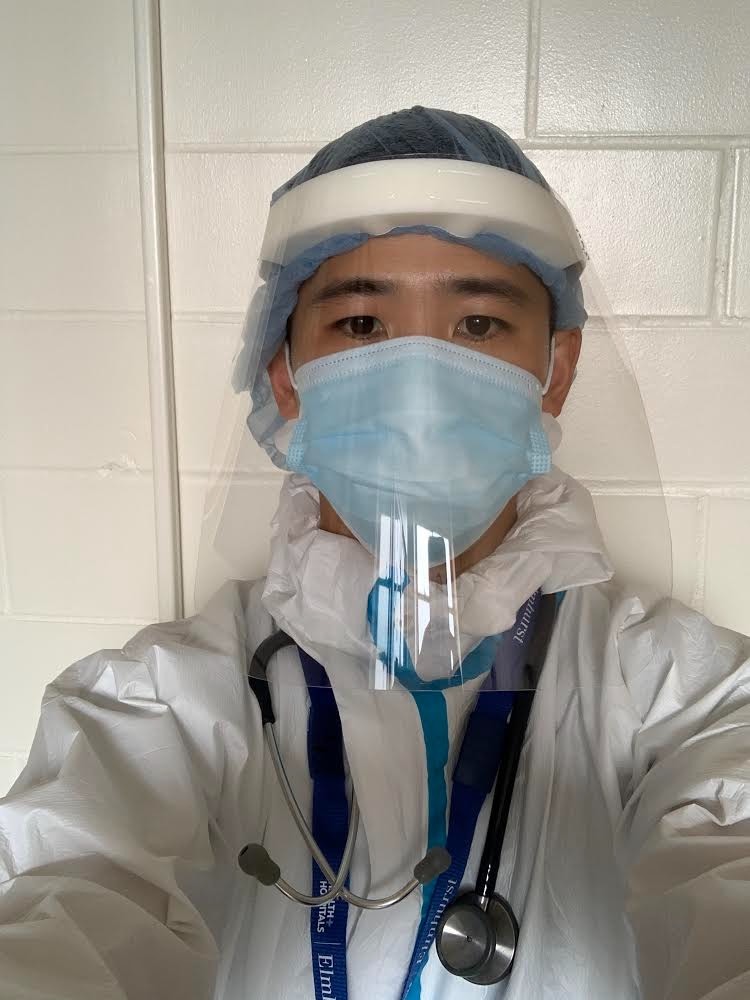
Jason Bae (2012 Fellow) is the medical director at Prealize Health, volunteered at Elmhurst Hospital in Queens, New York for a portion of the early crisis, and regularly works as a physician in the Palo Alto Medical Foundation Urgent Care’s Respiratory Care Clinic in California. Jason, an immigrant from Korea, has not only been serving on the front lines, but he has also been writing about the crisis and talking with journalists to share his invaluable insights. “We hear these things like ‘This quick test is coming,’ or ‘All these things are being FDA-approved and fast-tracked…with the exception of commercial testing being available, I really have not seen any of those things come true,” Jason told the MIT Technology Review.
Daniela Delgado (2015 Fellow) is a third year family medicine resident at Harbor-UCLA Medical Center in Los Angeles County. As a primary care physician, Daniela is focused on helping patients stay healthy and away from the hospital so she has been providing medical care to her patients through phone visits, as well as providing in-person urgent care. Along with other family medicine physicians, she has also been called to help other specialties.
Daniela, who is originally from Bogotá, Colombia is also a delegate representative for the resident union, the Committee of Interns and Residents (CIR). “This has been a very busy time leading multiple conversations with hospital and county wide leadership advocating for improved availability of personal protective equipment (PPE), testing, among other things to protect our patients and ourselves,” Daniela explained.
“I did not imagine I was going to be in training during an unprecedented pandemic, but it has showed me the resiliency of my peers and allowed me to grapple with the reality that as humanity we are not always in control,” Daniela said. “I am grateful for the housekeeping and all the ancillary staff who actually make our jobs as physicians possible. Most certainly, I am grateful for the shelter in place orders which hopefully will help us flatten the curve.”
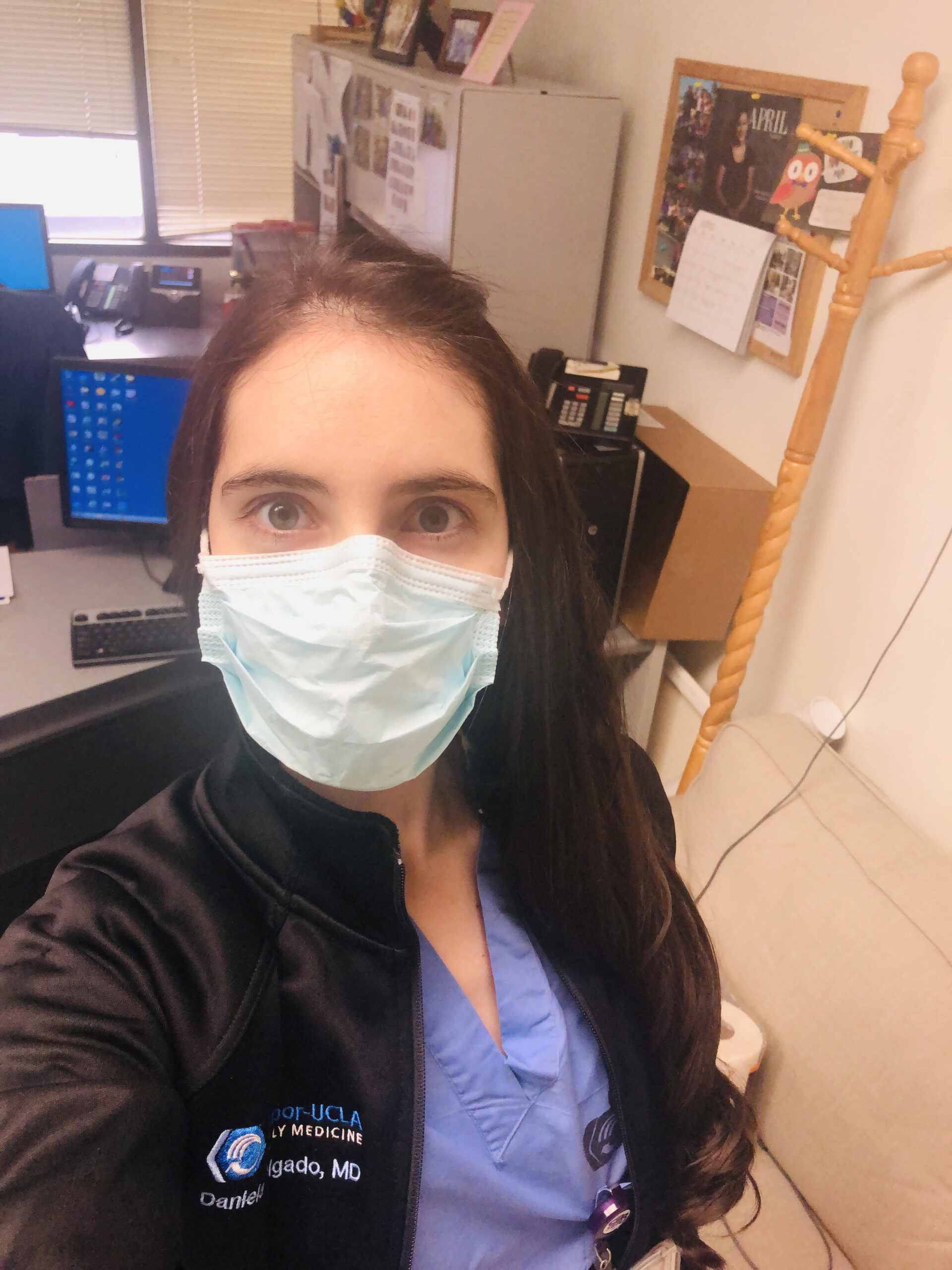
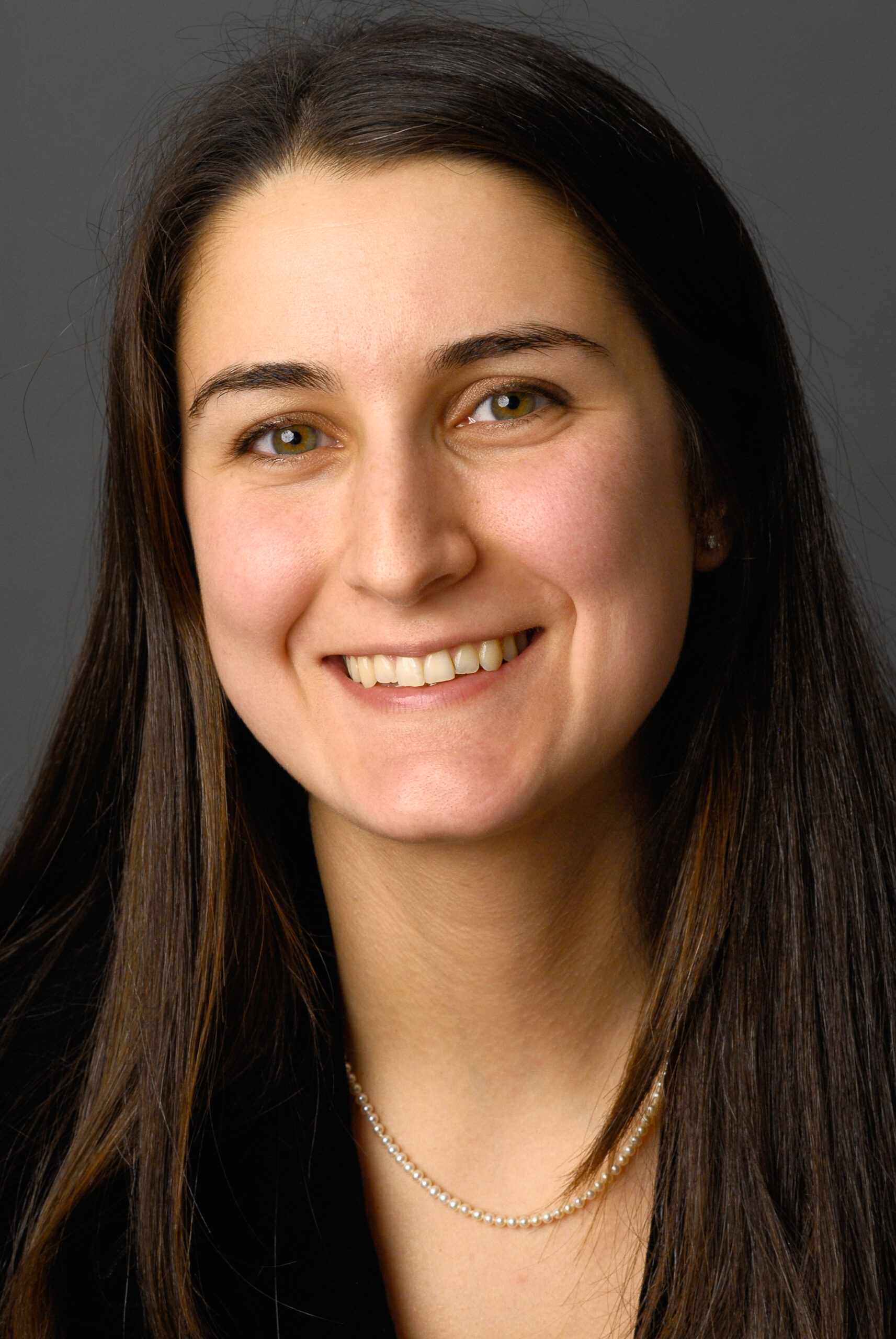
Shelli Farhadin (2007 Fellow) is the child of immigrants from Iran and is both directly caring for patients with COVID-19 in her role as an infectious disease physician, and she is leading clinical-translational COVID-19 research studies at Yale University.
Deepa Galaiya (2011 Fellow) is the neurotology and skull base surgery fellow in the Department of Otolaryngology at Johns Hopkins, where she will be starting a faculty position in June of 2020, Her department is currently seeing only urgent and emergent cases for otolaryngology, which includes patients with cancer or patients who will have permanent impending neurologic consequences if treatment is not started immediately.
“Otolaryngologists have been at the front lines internationally since so many of our procedures and patient encounters will aerosolize the virus from the nose and mouth. For now, the cast majority of our patients have been moved to telemedicine visits, and all elective surgeries have been cancelled. While that is a viable solution in the short term, I worry about the long-term consequences of leaving ‘elective’ conditions untreated for months on end,” Deepa explained. “I fear we will have a surge of patients will complications from untreated medical conditions that may coincide with the surge of COVID-19 patients.”
Deepa is a proud of John’s Hopkins and the state of Maryland. “Johns Hopkins as an institution has gone to amazing lengths to prepare the hospital system, and the research out of the school of public health has been influential in shaping state and national policy responses to the pandemic. Maryland has acted rapidly under bipartisan leadership to prevent the spread of the virus and has certainly been a leader in the DC/MD/VA region and the country,” Deepa, who is the child of immigrants from India, noted.
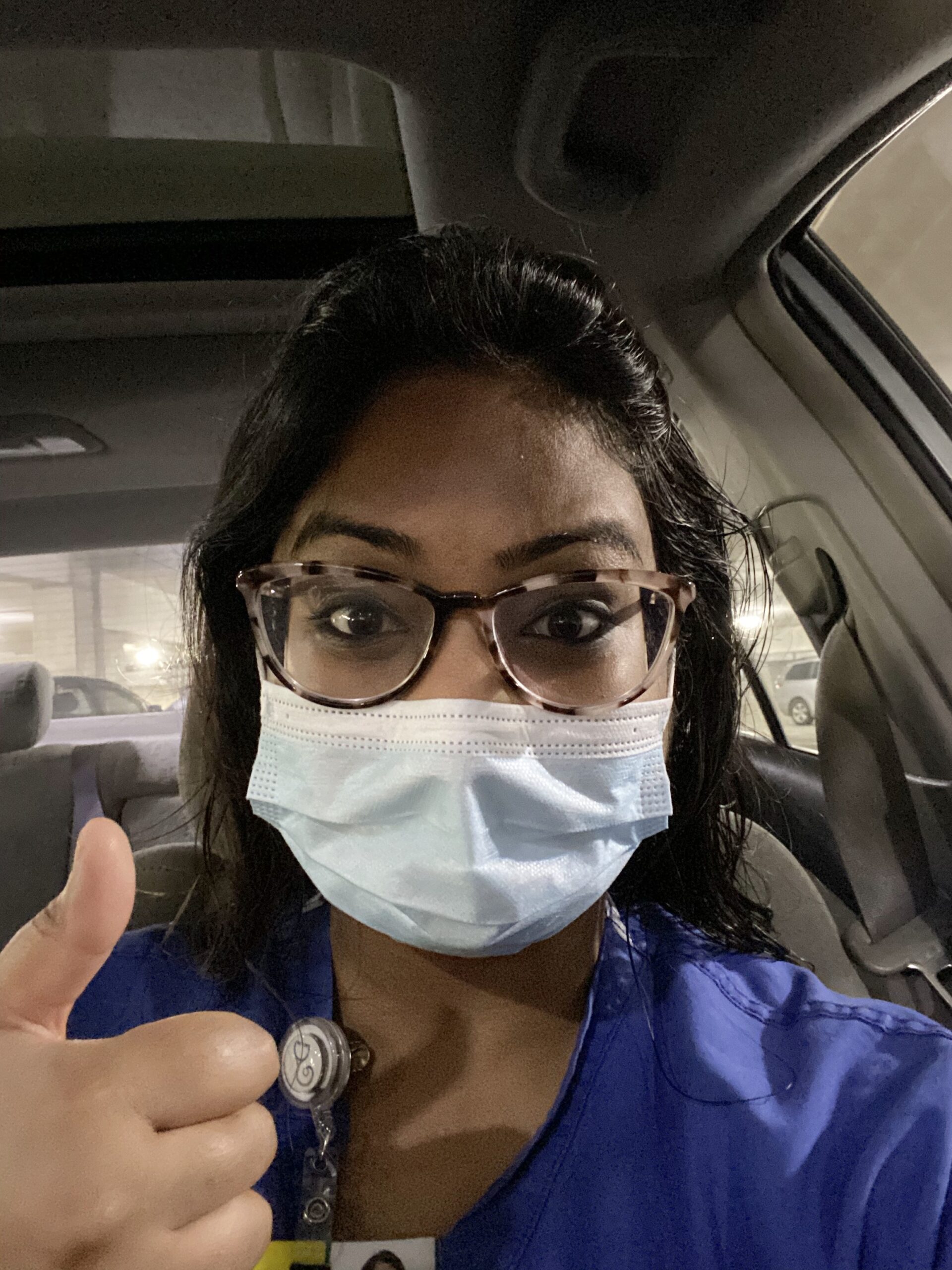
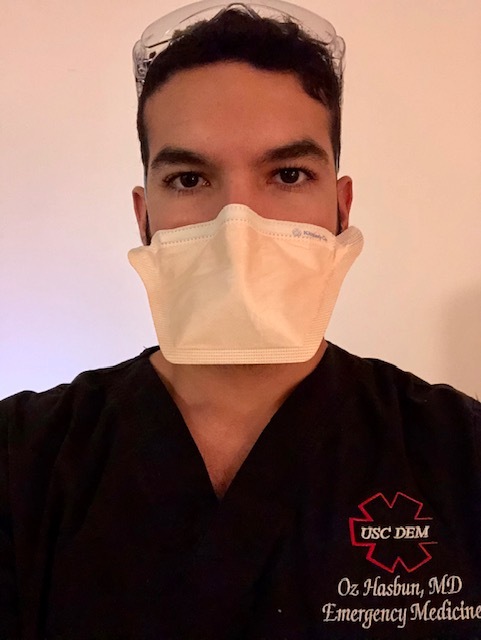
Oswaldo (Oz) Hasbún Avalos (2015 Fellow), an immigrant from El Salvador, is an emergency medicine resident at LA County Medical where he sees anyone who comes through the doors, COVID and non-COVID patients. “It’s a trying time in medicine, for many reasons. There is an unnecessary stress stemming from scarcity of basic PPE and more advanced protective gear (like PAPRs), which would make seeing patients much safer,” Oz explained. “There is also stress about how we can infect loved ones, with many colleagues unable to be close to their babies even. Yet there is also a larger stress from not knowing exactly what is best for these patients, as we continue to learn more about this virus and its pathophysiology—as well as the surprising ways this disease can be truly devastating in a variety of ways.”
Cynthia He (2013 Fellow), is a psychiatry resident at UCSF, where she is currently working at Zuckerberg San Francisco General Hospital and seeing patients hospitalized with psychiatric illness. “The COVID-19 pandemic has only increased the vulnerability of patients with serious mental illness,” Cynthia explained. “Many are older adults, have preexisting medical conditions, and have been struggling with homelessness and severe lack of resources. Despite all of the current system’s challenges, it’s a privilege to be part of a large team of clinicians (including nurses, social workers, occupational therapists, and so many crucial ancillary staff) to care for an advocate for our fellow San Franciscans.”
Cynthia was born in Shanghai, China. She and her family moved to California soon after she was born.
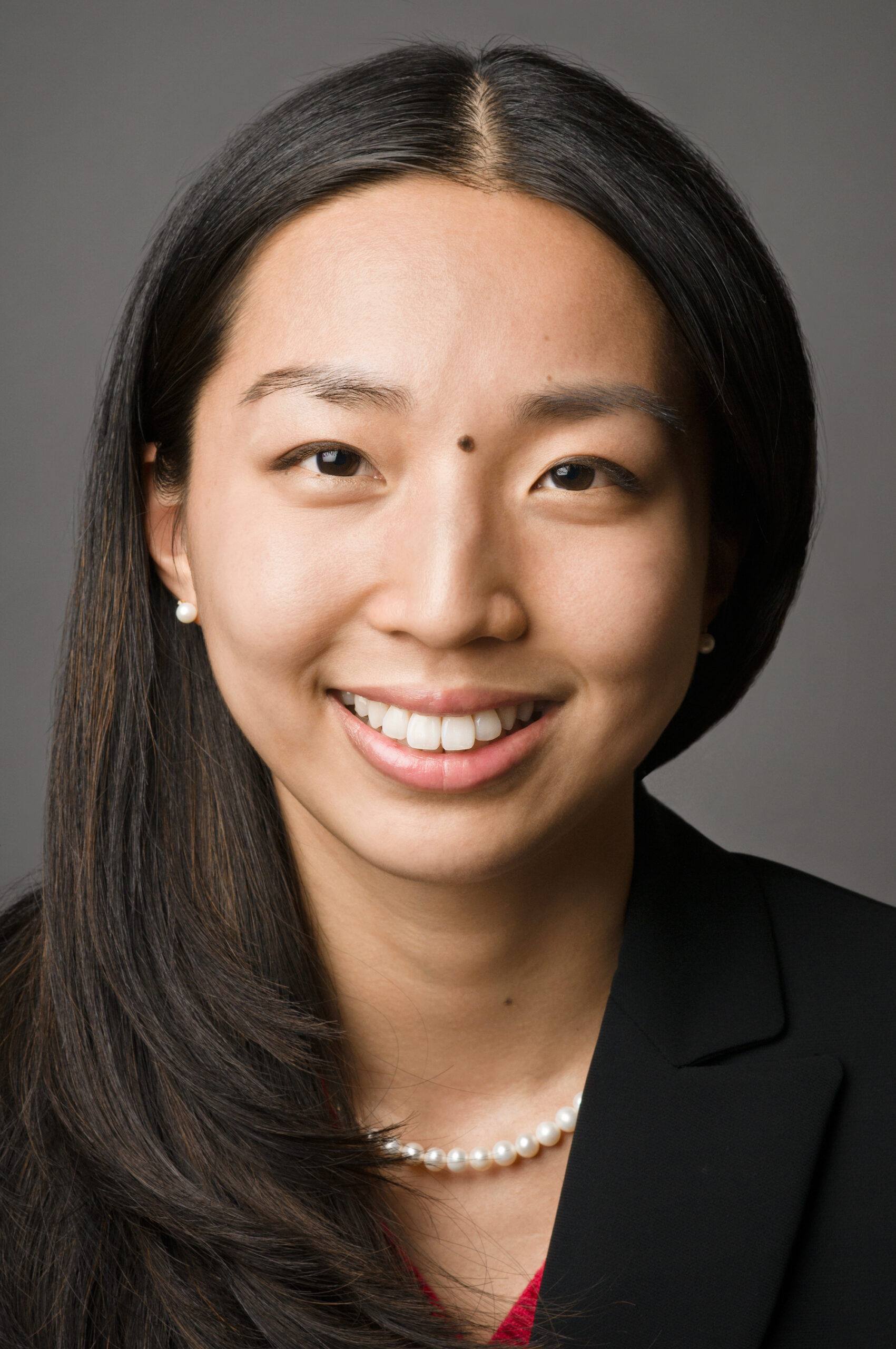
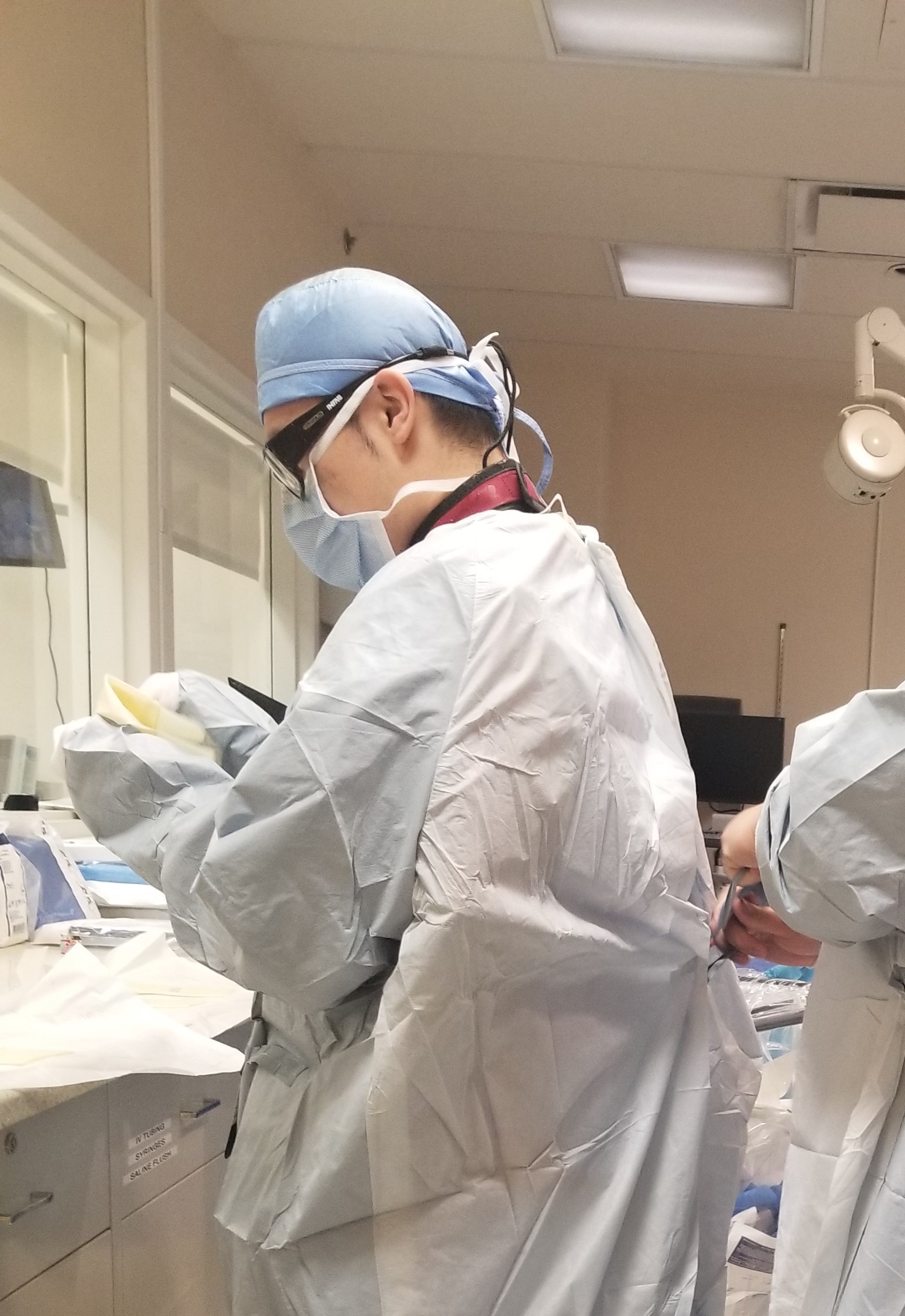
James Hui (2013 Fellow), is a resident physician in interventional and diagnostic radiology at Stanford University Hospital where he is seeing patients with and without COVID-19. Those who do not have the virus are typically suffering from a recent trauma or have cancer and are unable to wait or postpone their procedures and imaging’s. James said, “I especially admire our colleagues, such as those in nursing, respiratory therapy, EM, IM, and anesthesia (among others), who are holding our front-line against COVID. Dispute the logistical burdens personal risk they are facing daily, they rise to the challenge, stand tall against the formidable for and take care of the most vulnerable. Times like this remind me of just why we chose to pursue a career in healthcare, despite the long training and tiring days – there is nowhere else I’d rather be than to stand with my colleagues in this fight.”
James, who was born in northwest China, was 12 when his family immigrated to Los Angeles.
Sanjay Kishore (2017 Fellow), the child of immigrants from India, is a medical resident at Brigham and Women’s Hospital where he has been caring for COVID patients and checking in on primary care patients by phone. “In the hospital, the intense loneliness of patients has been so palpable. It feels like our only real intervention is facilitating connection in this time of distance – FaceTiming a dying man’s children so they can see his last breaths, video chatting a granddaughter so she can see her grandmother for the first time in a month, or bearing witness to a man who survived the ICU but is entering depression because this is the longest time he’s gone without seeing his wife for 48 years,” Sanjay explained.
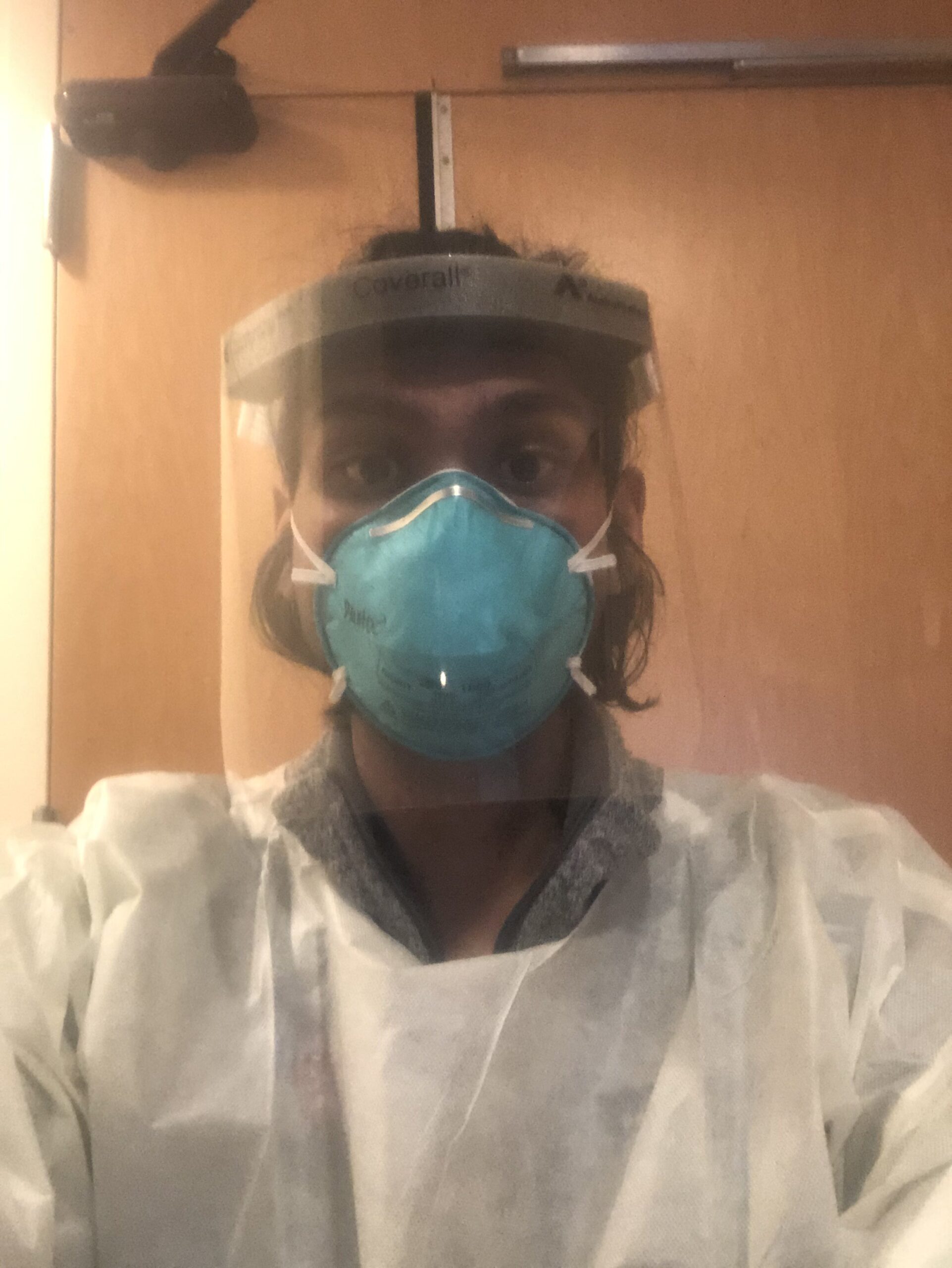
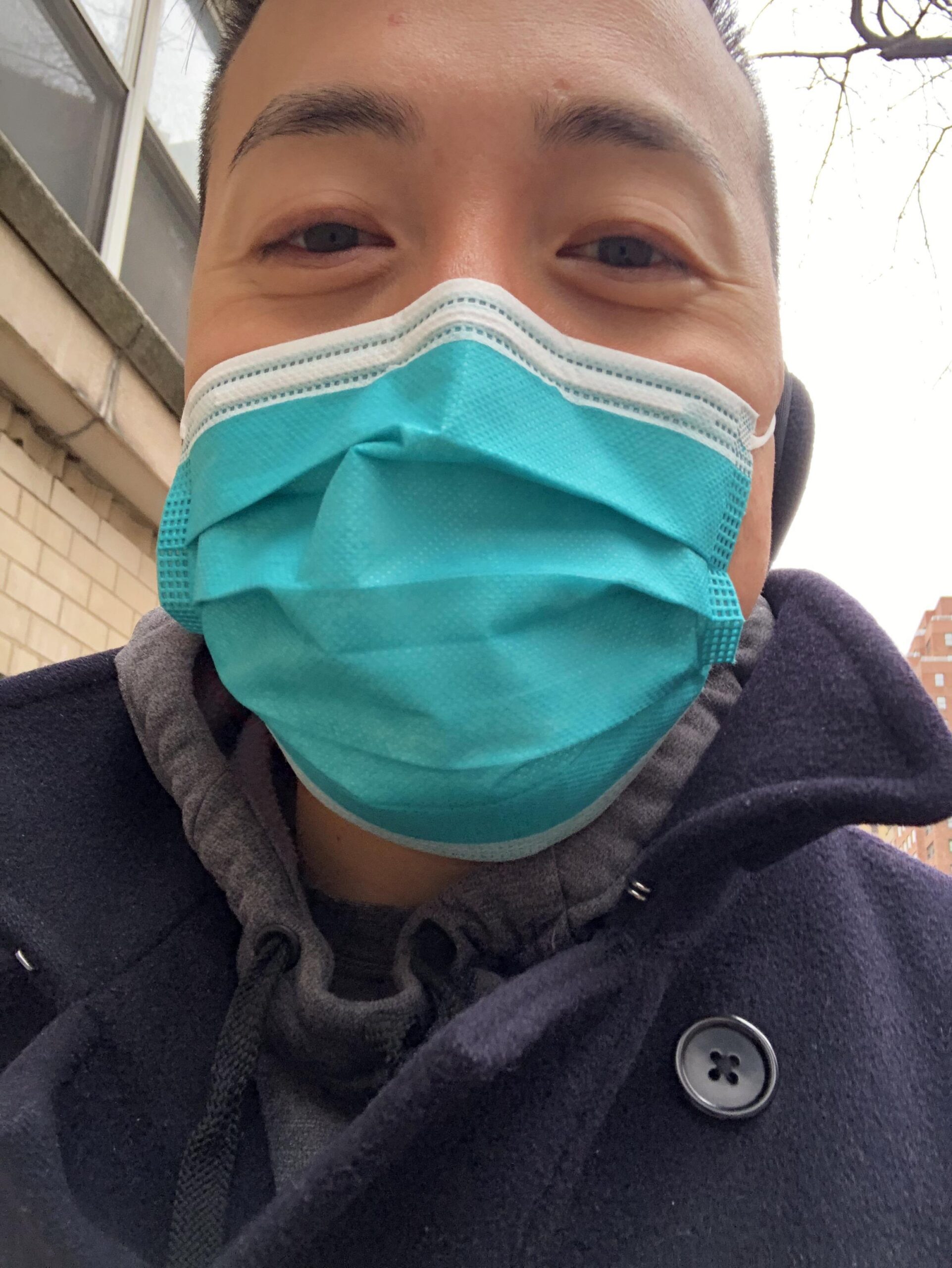
Paul Kwak (2006 Fellow), the child of immigrants from South Korea, is a physician at NYU Langone Medical Center, in the Department of Otolaryngology-Head and Neck Surgery (ENT), where he has been working on the COVID ICUs, as part of the airway team(s), and doing tracheostomies to try to help patients get off of ventilators and recover more quickly. Paul notes, “It’s a warzone at the hospital; tensions are high. But the nurses, medical assistants, and cleaning staff are the real heroes and angels—they are truly the front line. In the midst of fear, there is increased camaraderie and a shared sense of purpose, which is inspiring.”
Grace Lopez (2001 Fellow), the mother of two small children, is a pediatric anesthesiologist working at a small community hospital in Rockville, Maryland where, as of early April, there was a limited number of COVID-19 patients and they were preparing for a surge. Given that there is not enough work for everyone because of the limited number of patients, Grace’s department has asked for “volunteers” to stay home without pay until further notice, where Grace has done for some portion of the crisis. Grace typically serves adult patients, pregnant women who have epidurals, and those who have cesarean births, as well as any baby under the age of one that requires surgery. During the COVID-19 crisis, her department is responsible for intubating all COVID-19 patients and is also helping to manage patients in the ICU. While there is a very limited supply of PPE, there is an even smaller supply of powered air purifier respirators (PAPR), which helps to protect doctors during high-risk intubations.
Grace’s family fled the civil war in El Salvador two years after she was born, settling in Lancaster, California. Her mother, who is disabled, is now back in El Salvador, which is a source of constant worry for Grace, particularly during the crisis.
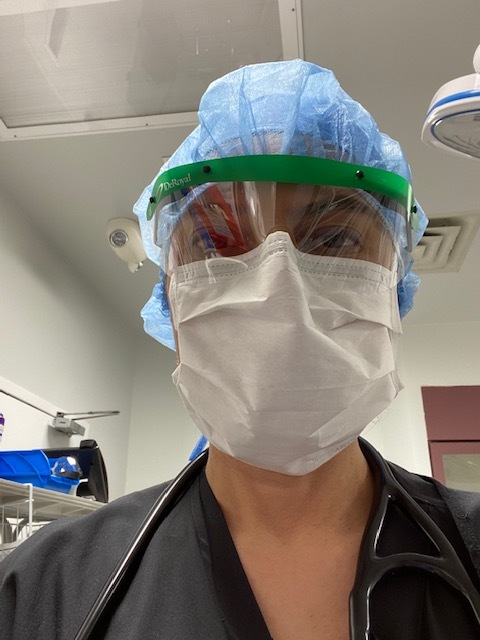
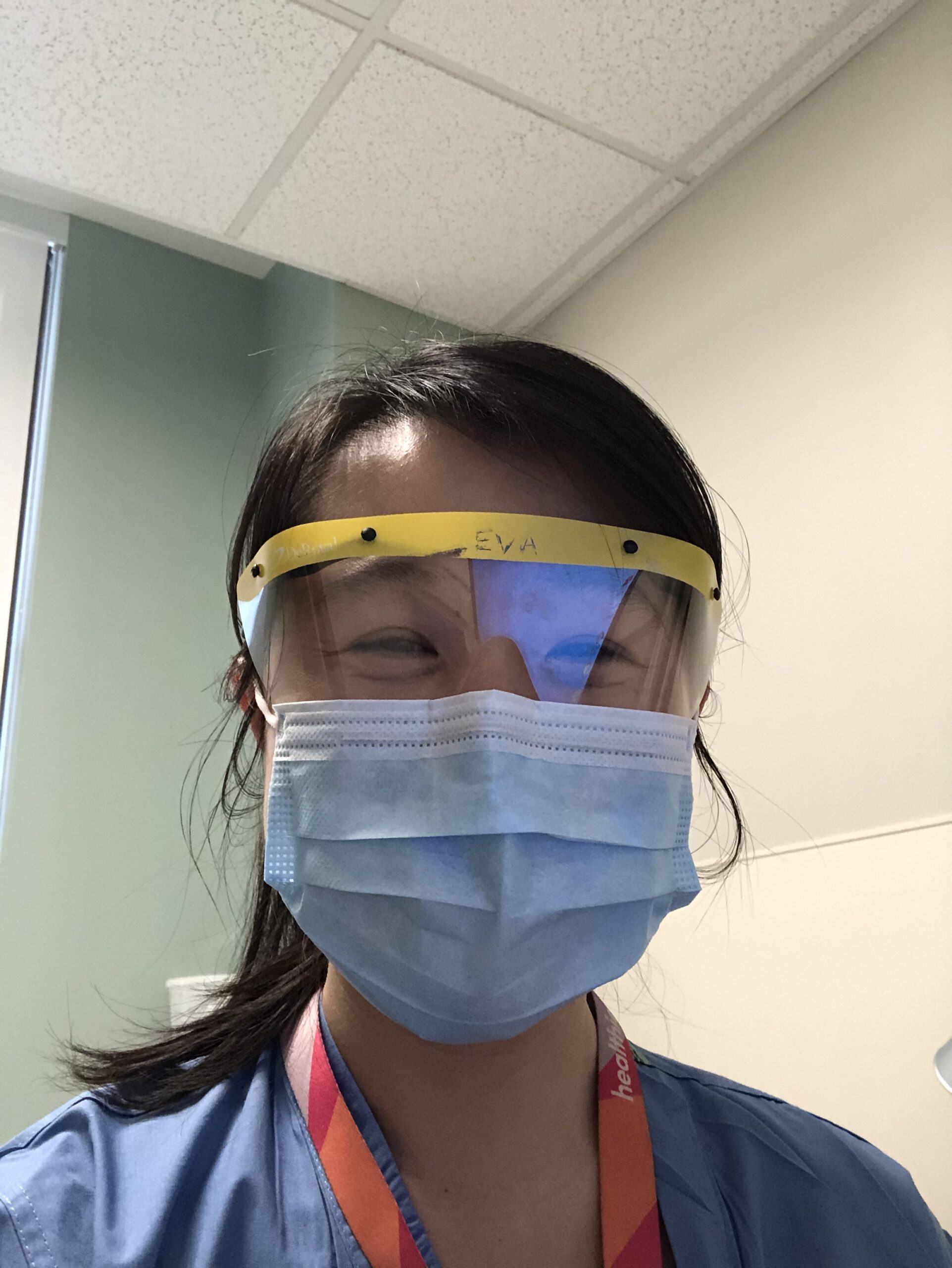
Eva Luo (2012 Fellow), is caring for pregnant patients primarily coming in to deliver or who have pregnancy complications and any woman with any urgent or emergent gynecological issues at Beth Israel Deaconess Medical Center in Boston. Eva said, “Being pregnant now is a whole new level of anxiety and complexity. But, your doctors and nurses are still here for you every moment of the day and are ready to keep you safe on this big moment of your life – coronavirus or not!”
Eva was born in Florida to parents who had, only a year prior to having Eva, reached the United States in the aftermath of the Chinese Cultural Revolution. She is a graduate of Harvard Medical School and Harvard Business School.
Veronica Manzo (2016 Fellow), the child of immigrants from Mexico, is an internal medicine intern at UCSF, where she has been primarily caring for patients without COVID-19, to help the hospital conserve PPE. “Today, a patient I first took care of in the ICU 16 days ago, walked out of the hospital to meet his parents. With the new patient visitor restrictions, he hadn’t seen anyone but a nurse, respiratory therapist, or doctor in weeks,” Veronica writes. “You can imagine how this environment can cultivate anxiety and harm the mental well-being of patients — and family members too. I called both sets of parents every day. I think it helped… His parents were grateful.”
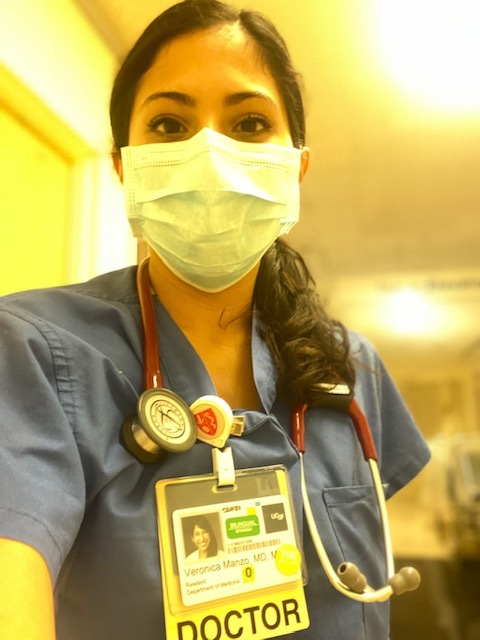
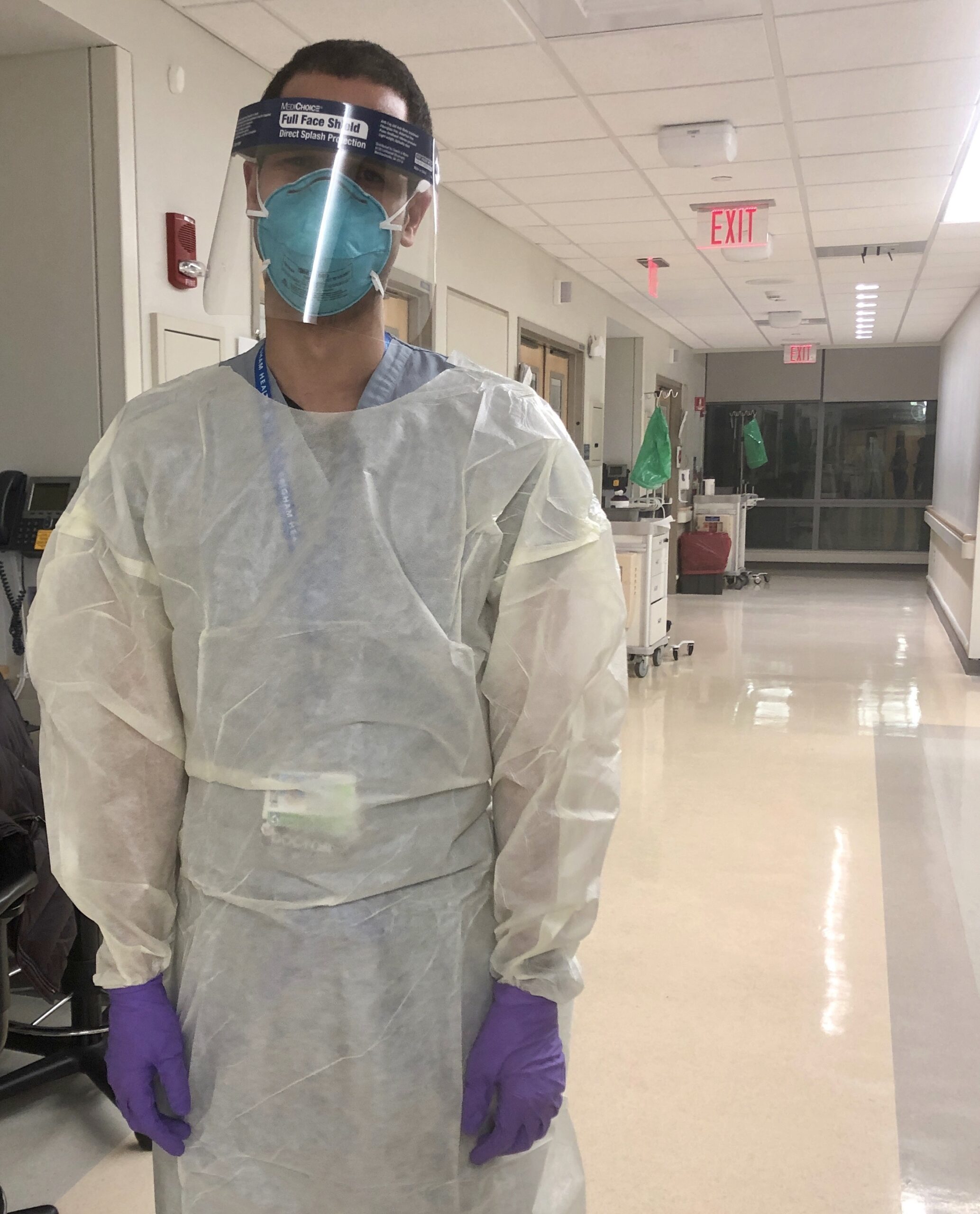
Wilfredo Matias (2013 Fellow), an immigrant from the Dominican Republic, is the senior medicine resident in the Division of Global Health Equity at Brigham and Women’s Hospital where he is taking care of patients in the Special Pathogens Unit and the Intensive Care Unit. “Serving on the front lines caring for patients with COVID-19 has been a privilege,” Wilfredo said. “Yes, this pandemic is challenging the foundations of our care delivery system, exposing faults and inequities that have long been present, and yet despite this, every day, I am inspired by the small acts of ingenuity, selflessness and heroism that I see among healthcare providers. It reminds me that we will overcome this and gives me hope that once this is all over, we will be stronger because of it.”
Lucy Ogbu-Nwobodo (2015 Fellow) is an immigrant from Nigeria and a resident in the MGH/McLean Harvard Psychiatry Residency Program in Boston. Many of Lucy’s patients are primarily at the hospital for other reasons aside from psychiatry, such as burns, accidents, or disease, and some of them also have COVID-19. “In times like this, we have to do things to feel less helpless,” Lucy explained. “I see how health disparities play into how people are treated and the care they receive—it’s very difficult. So many structural factors can culminate and lead to really bad health outcomes. In addition to serving patients, part of my work has been about diving into these disparities and trying to understand how communities around hospitals can benefit from the success of hospitals.” Lucy has become a patient advocate, she’s on a diversity and inclusion task force and a COVID-19 task force, and she is studying racial justice and health messaging.
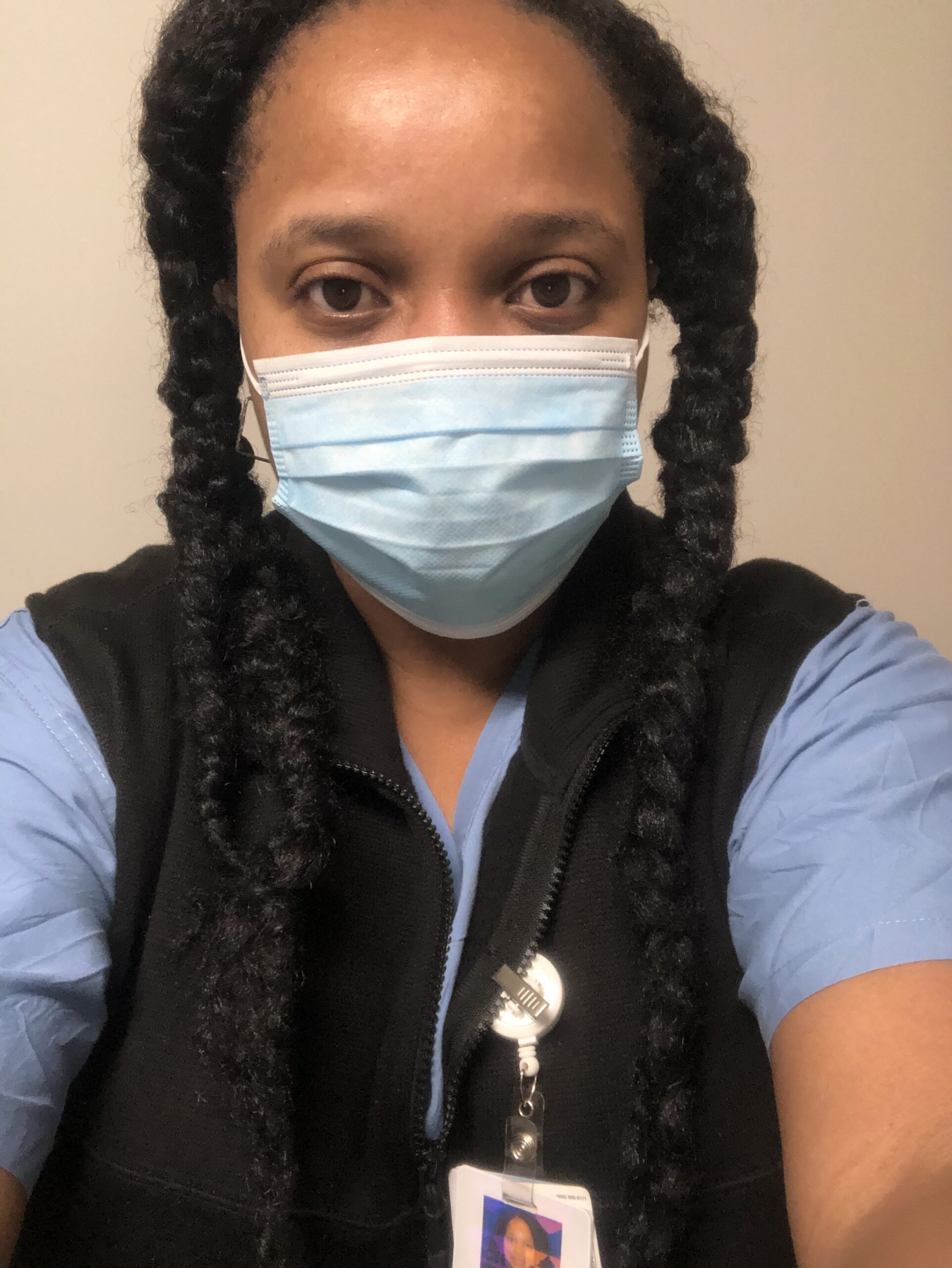
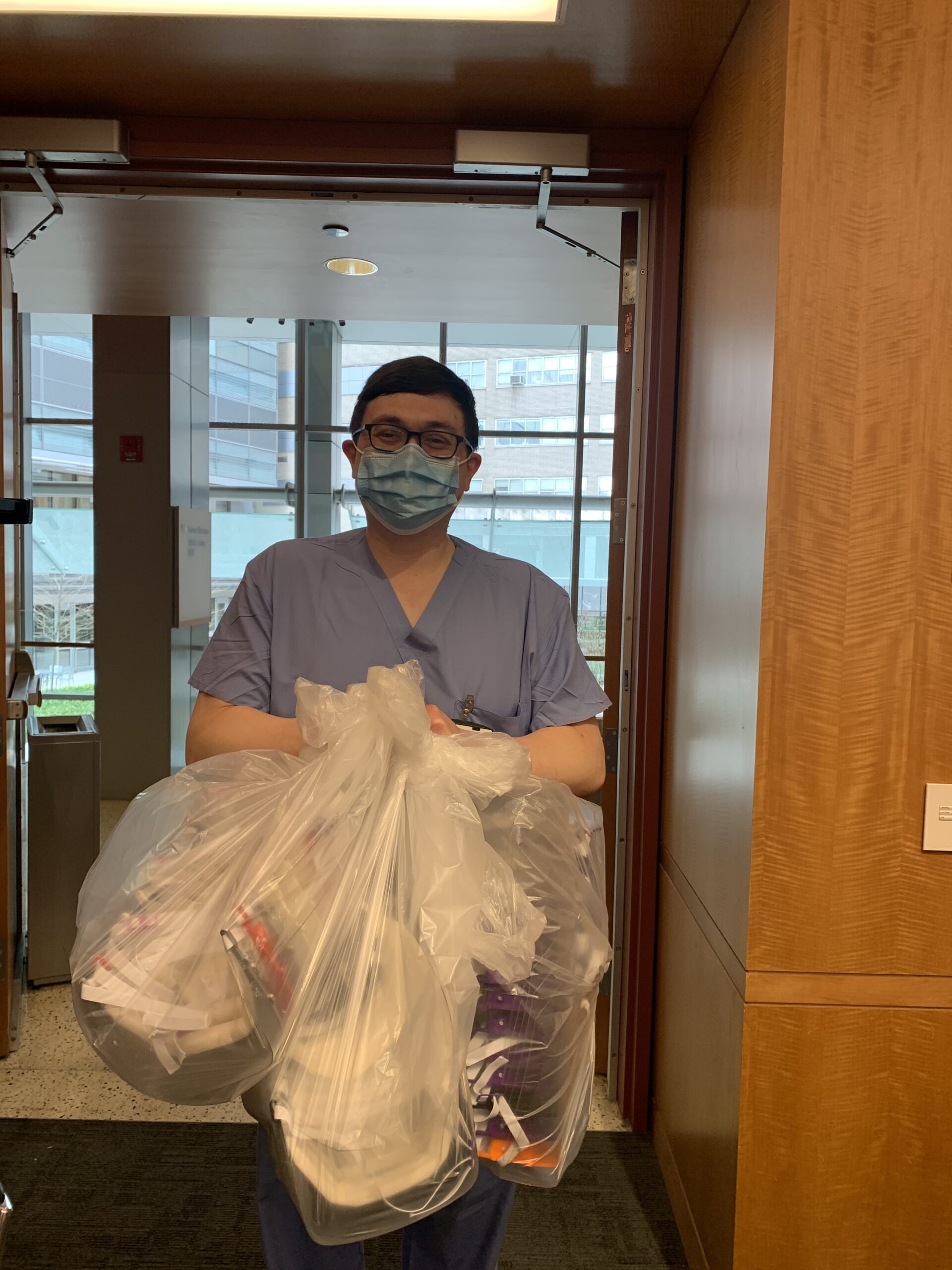
Michael Pacold (2003 Fellow), assistant professor of radiation oncology at New York University, is covering the radiation oncology clinics where they are seeing and treating patients who have COVID-19 and cancer. He has also been involved in an effort with Tim Lionnet, an assistant professor in the Institute for Systems Genetics at NYU, to produce face shields using 3D printing and laser cutting or NYU Langone, an effort made possible by dozens of volunteer graduate students and postdoctoral fellows who have been assembling the shields. They are now deploying these face shields to other institutions to ensure that they have appropriate PPE. Michael is pictured holding bags of face shields ready to be deployed to clinics.
Michael is the child of immigrants – his father from the Czech Republic and his mother from Indonesia, where she was a member of the Chinese minority.
Keyan Salari (2007 Fellow), is the child of immigrants from Iran and a urologic oncologist at Massachusetts General Hospital in the Department of Urology and MGH Cancer Center. During the COVID-19 crisis, Keyan’s department has been seeing almost all of their clinic patients through virtual visits to promote social distancing, and has been deferring all non-essential surgeries. As a urologic oncologist, all of Keyan’s patients have cancer and many are at risk for progression of their disease or increased mortality if their treatment is delayed significantly. Keyan explained that his team has been forced to make difficult decisions as they prioritize which surgeries to perform now and which to defer until after the pandemic subsides. He noted, “I am grateful that all of our patients have been very understanding and recognize that as we weigh the risks of their cancer against the risks of COVID-19 exposure, we are making these decisions with their best interests in mind.”
“I also feel fortunate to be part of the larger effort at the Massachusetts General Hospital, which has been a longstanding national leader in emergency preparedness. When I was a surgery intern during the Boston Marathon bombing of 2013, I witnessed how quickly and effectively the entire Mass General staff responded to this unprecedented disaster,” Keyan continued. “Today, I see that same determined response from all our healthcare workers on the frontlines. I am inspired by the bravery and leadership of my colleagues, and I am proud to be a Mass General physician.”
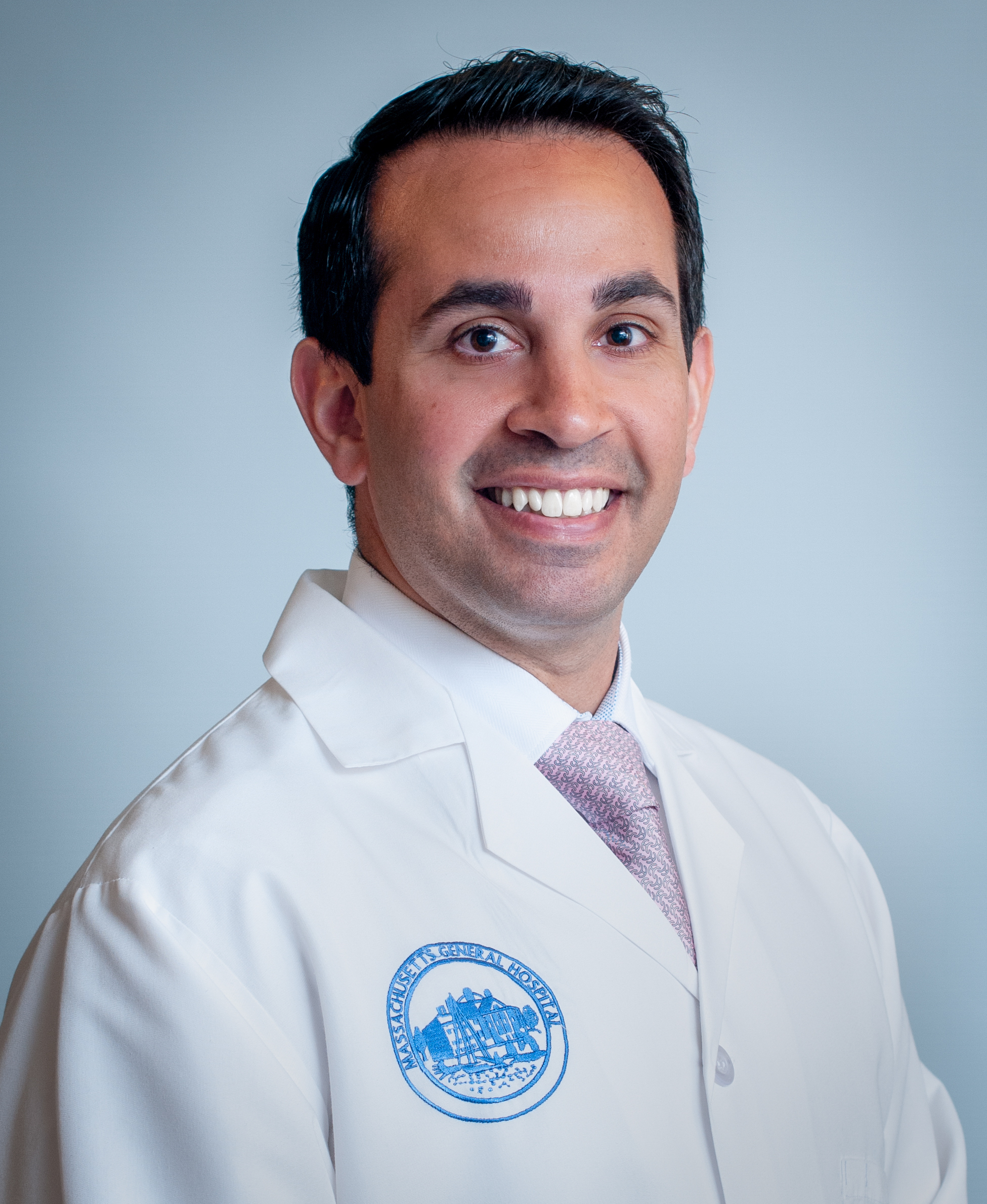
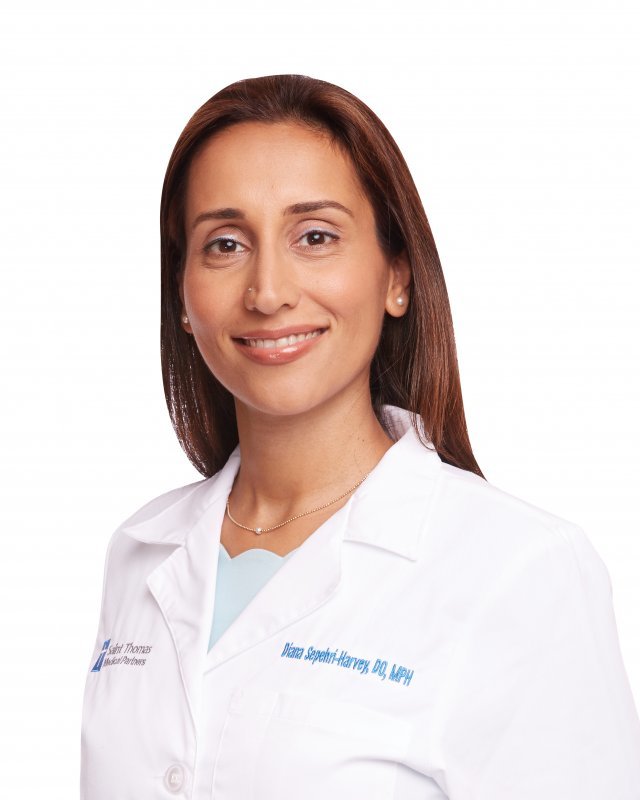
Diana S. Sepehri-Harvey (2004 Fellow), an immigrant from Iran, is a family medicine physician at Saint Thomas Medical Partners in Nashville, Tennessee, where she’s been seeing patients in a primary care clinic and at COVID-19 assessment sites. Diana’s work has recently taken the form of everything from virtual care for patients with chronic medical conditions, office visits for acute care needs, supervision of nurse practitioners at a COVID-19 call center and at assessment sites. She’s also been working closely with the health system’s Clinical & Operational leadership to develop protocols and best practices to streamline their testing while keeping their healthcare force safe.
Naman Shah (2010 Fellow) is a faculty member at Jan Swasthya Sahyog, a community-based NGO in rural, Central India. He is seeing patients, including those with COVID, training family medicine residents, and also maintaining essential health services including ER care, tuberculosis care, and C-sections. He is writing a series about what he is seeing for Caravan Magazine. Naman is also working as a member of the Indian government’s Epidemiology and Surveillance subgroup of the National COVID-19 Task Force.
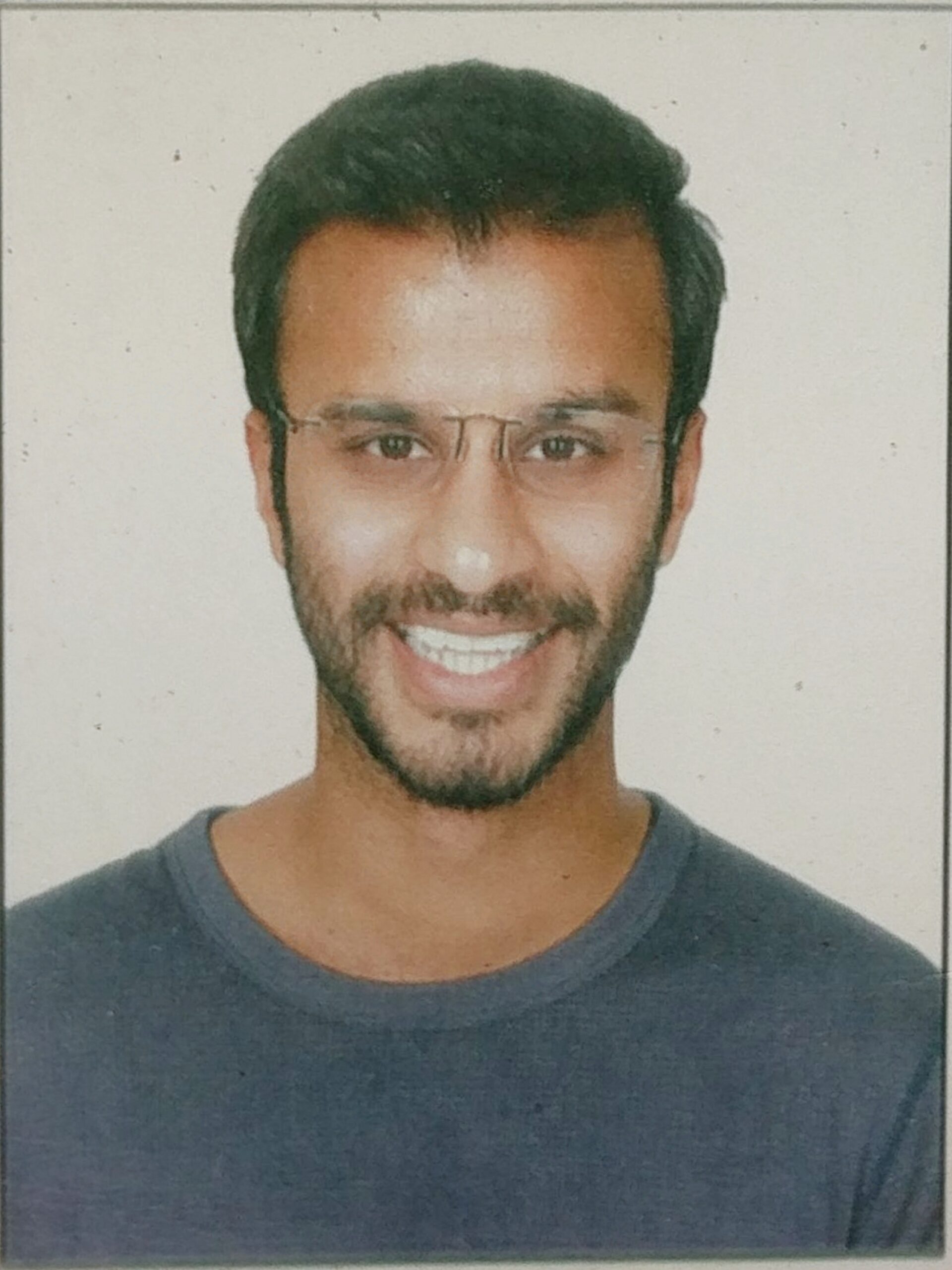
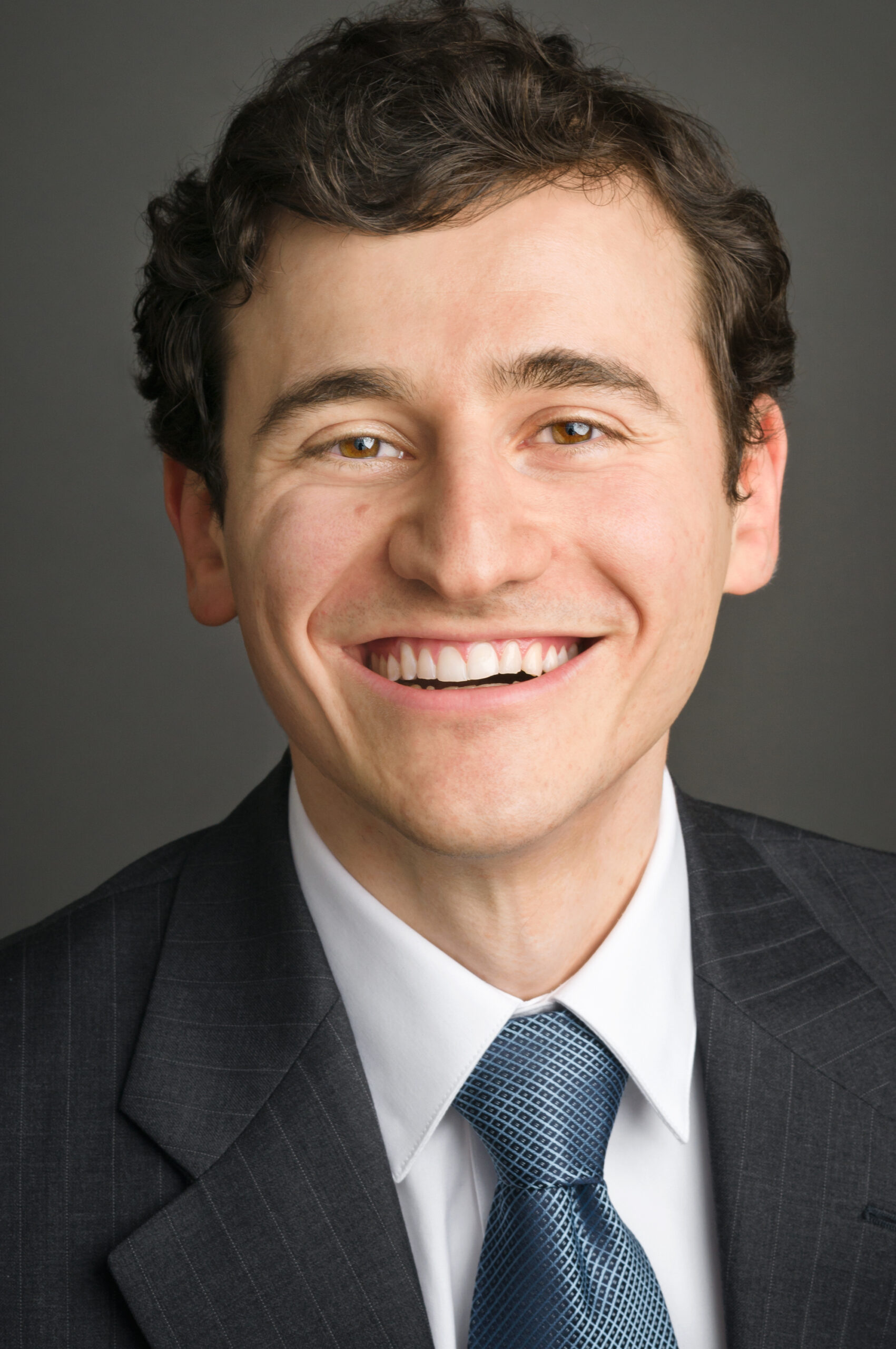
Kevin Shenderov (2014 Fellow) is a pulmonary and critical care fellow at Johns Hopkins, where he is helping to run the hospital’s medical ICUs, which are now dedicated to taking care of COVID patients. “It is an incredible privilege to take care of the critically ill during this time and to work side-by-side with everyone in the hospital who is coming together with amazing dedication and courage in the face of this unprecedented challenge,” Kevin explained. “It has also been really heartwarming to feel the support of our community (e.g. restaurants donating food to our ICUs along with encouraging messages). Hopefully everyone continues to take social distancing seriously so that we can flatten the curve.”
Kevin’s family fled Chernovtsy, the Ukrainian town south of Chernobyl where he was born, to seek medical care in the US for illnesses developed after the 1986 nuclear disaster. Thanks to doctors in New York, both he and his older brother fully recovered. The experience left him eager to understand disease on a molecular level.
Mubeen Shakir (2016 Fellow), the the youngest son of Indian Muslim immigrants, is a resident physician in internal medicince at Massachusetts General Hospital. Mubeen tweeted, “We intubated 11 people in my shift in the ED today. One my age. I had 3 conversations with family members that their loved one was going to need a ventilator while they waited in the parking lot (no visitors). The curve is nowhere near flat. #StayHome”
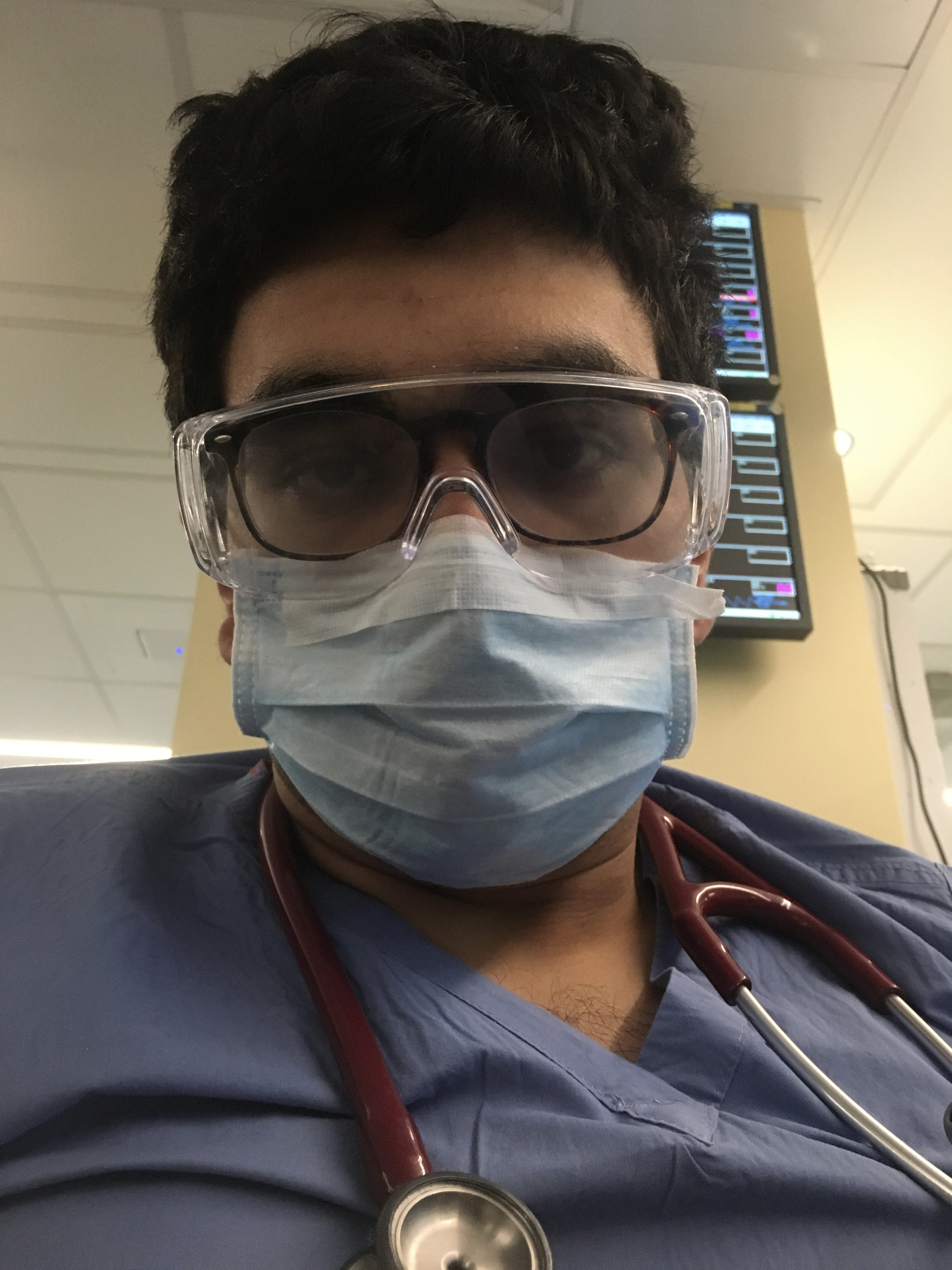
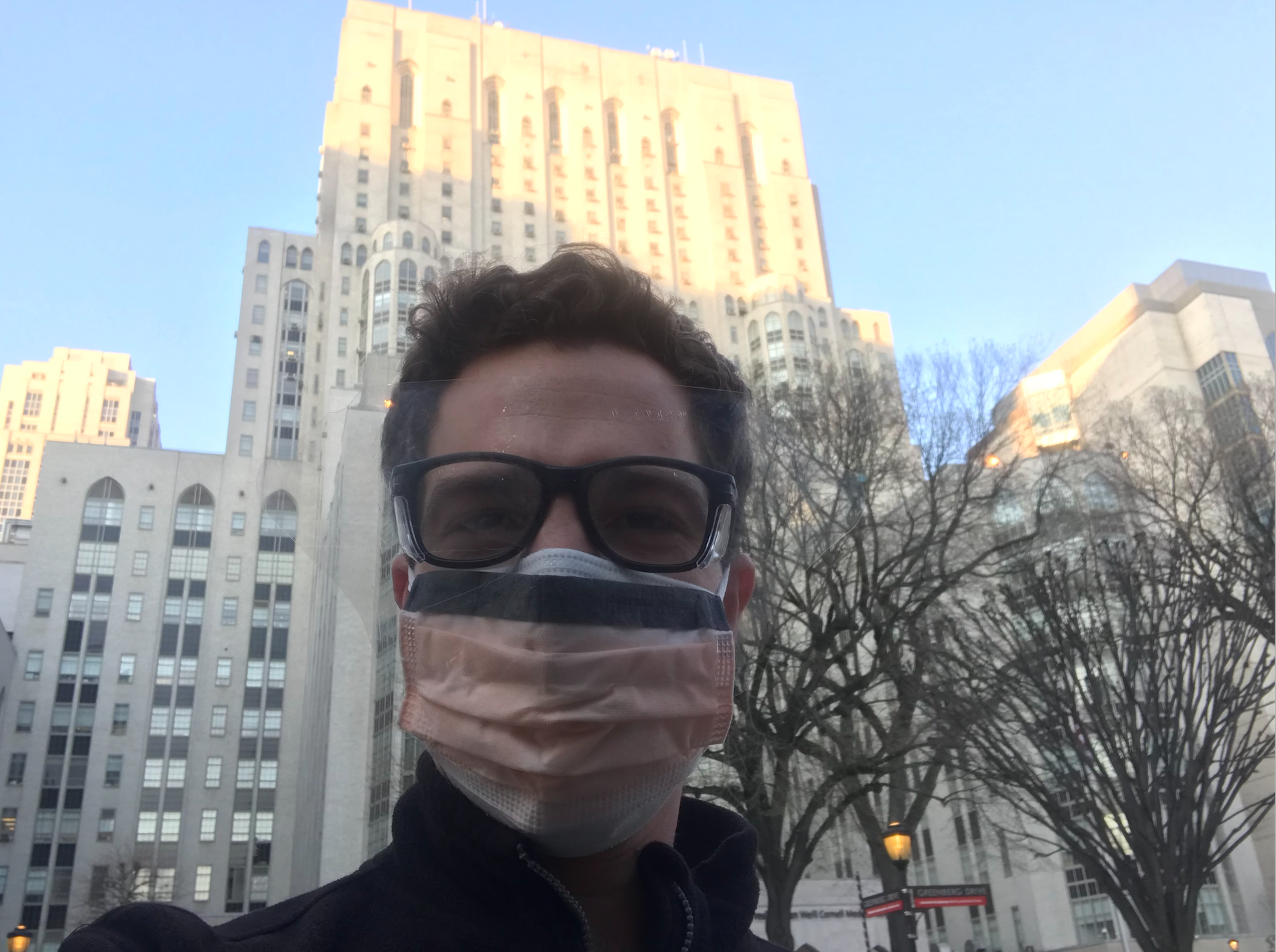
Andre Shomorony (2015 Fellow) is a resident physician in the department of otolaryngology at New York Presbyterian Hospital where he focuses on head and neck surgery. During the crisis, the hospital’s surgical volume has significantly decreased, but Andre continues to take care of surgical patients who require emergency or essential operations. “In these dark times, it’s so heartwarming to see the outpouring of love, support, and camaraderie emanating from all corners of this great city. It’s a daily reminder of why we chose this profession,” Andre noted.
Andre was born in Rio de Janeiro, Brazil, to parents of Jewish-European descent and immigrated to the United States with his family when he was 15.
Sahar Soleimani (2015 Fellow) is an immigrant from Iran and a radiology resident at Johns Hopkins Hospital where she is seeing patients of all ages and conditions. For much of April, 2020, she mostly saw patients presenting to the emergency room with trauma or acute illnesses including COVID. “My heart goes to all the patients battling cancers, young women with autoimmune diseases, kids with congenital conditions, and all the vulnerable patients with chronic illnesses across the globe whose care has been inevitably interrupted,” Sahar said.
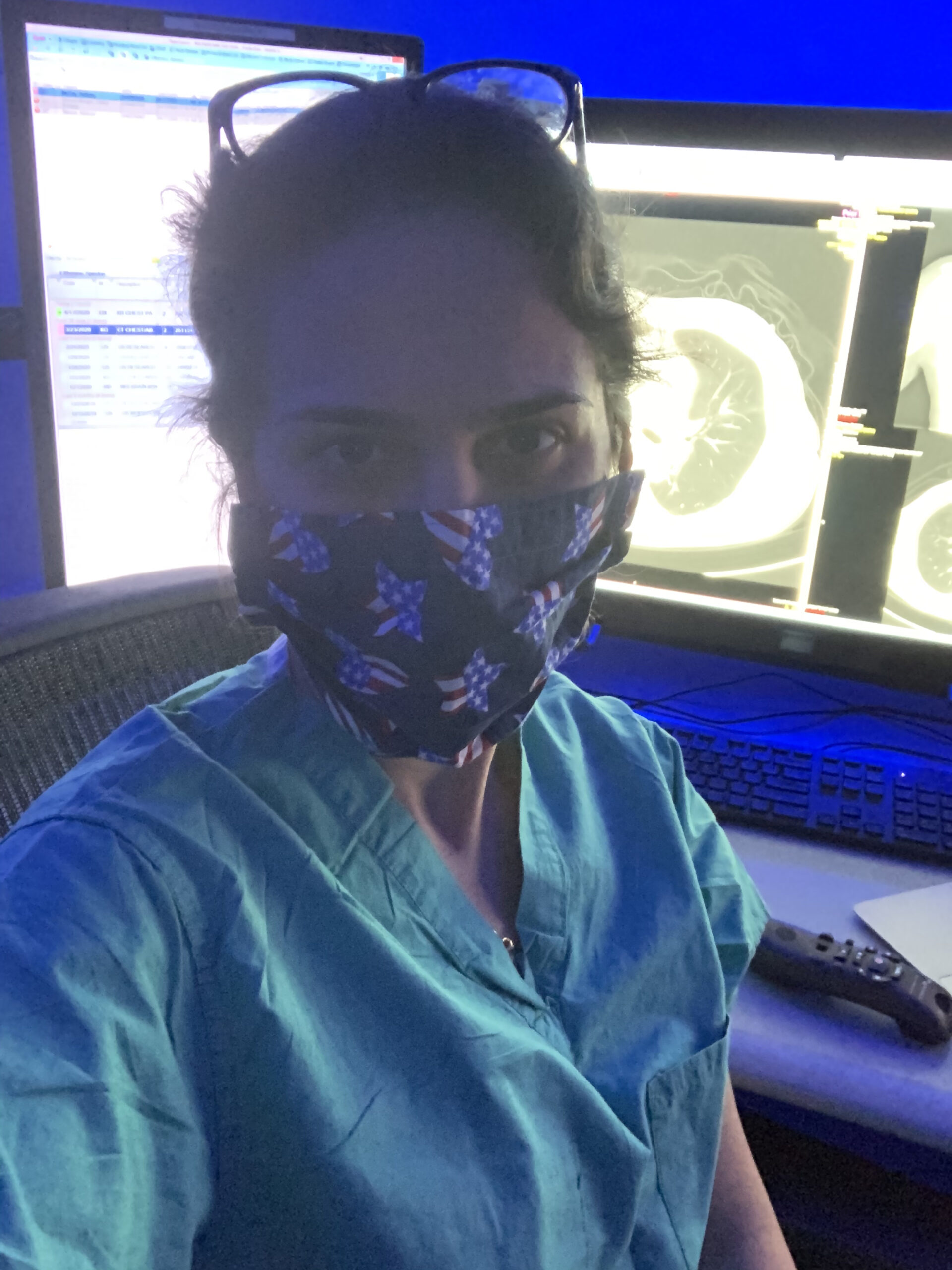
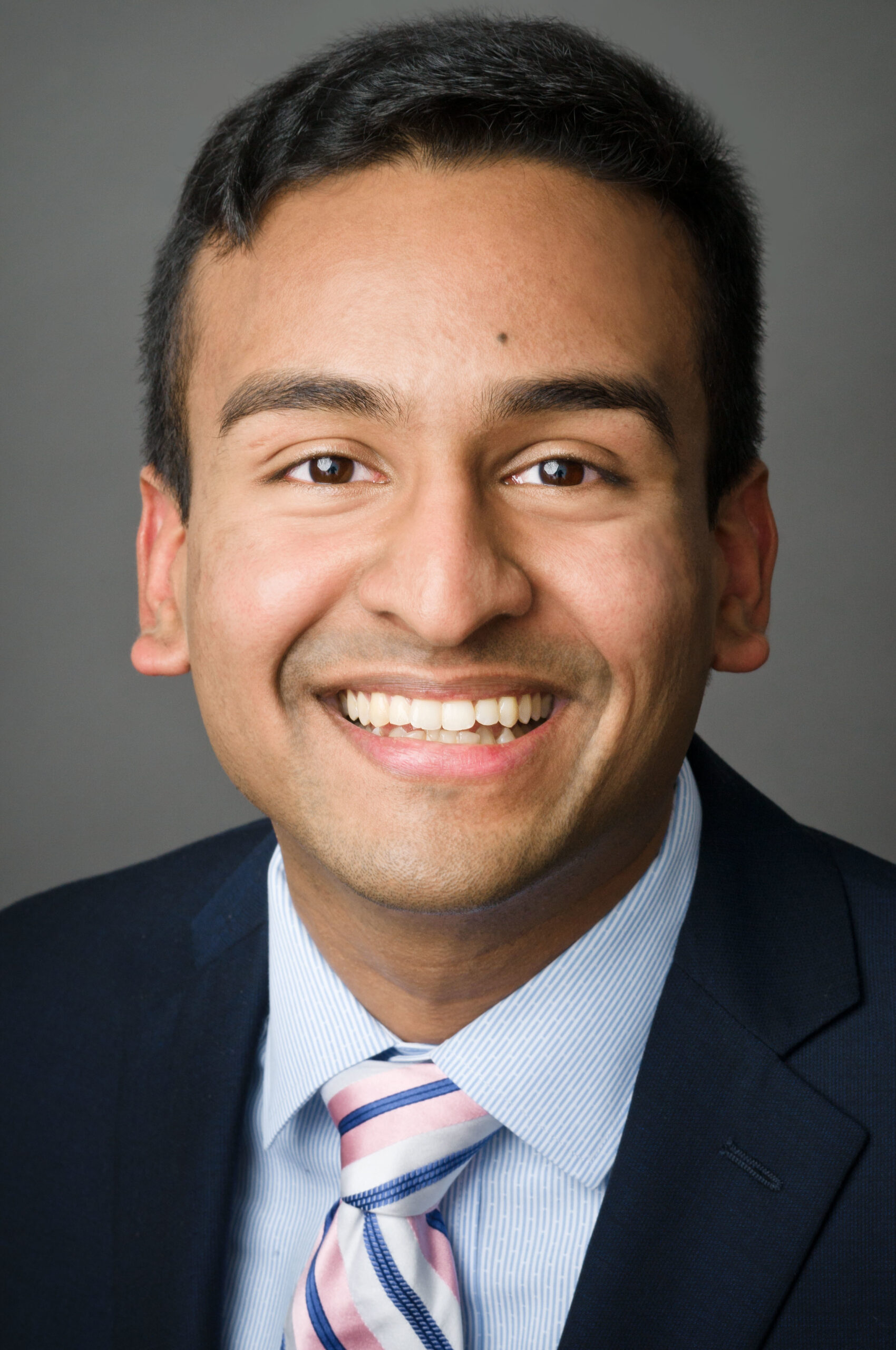
Vishwajith Sridharan (2016 Fellow), an immigrant from India, is working in the ICU at Massachusetts General Hospital. He wrote, “Amid all the chaos, what a privilege it has been to be surrounded by colleagues — nurses, residents, attendings, respiratory therapists, janitorial staff — all showing up everyday to take care of our sickest patients.”
Jonathan Tsai (2014 Fellow) is a clinical pathology resident at Brigham and Women’s Hospital and has been supporting efforts around COVID-19 testing. Jonathan is finding that one of the most challenging technical parts of the crisis is the amount of coordination necessary between patients, clinicians, pathologists, and laboratory technicians. “It’s great to see the entire scientific community in Boston come out and pool ideas, resources and all at once,” he noted.
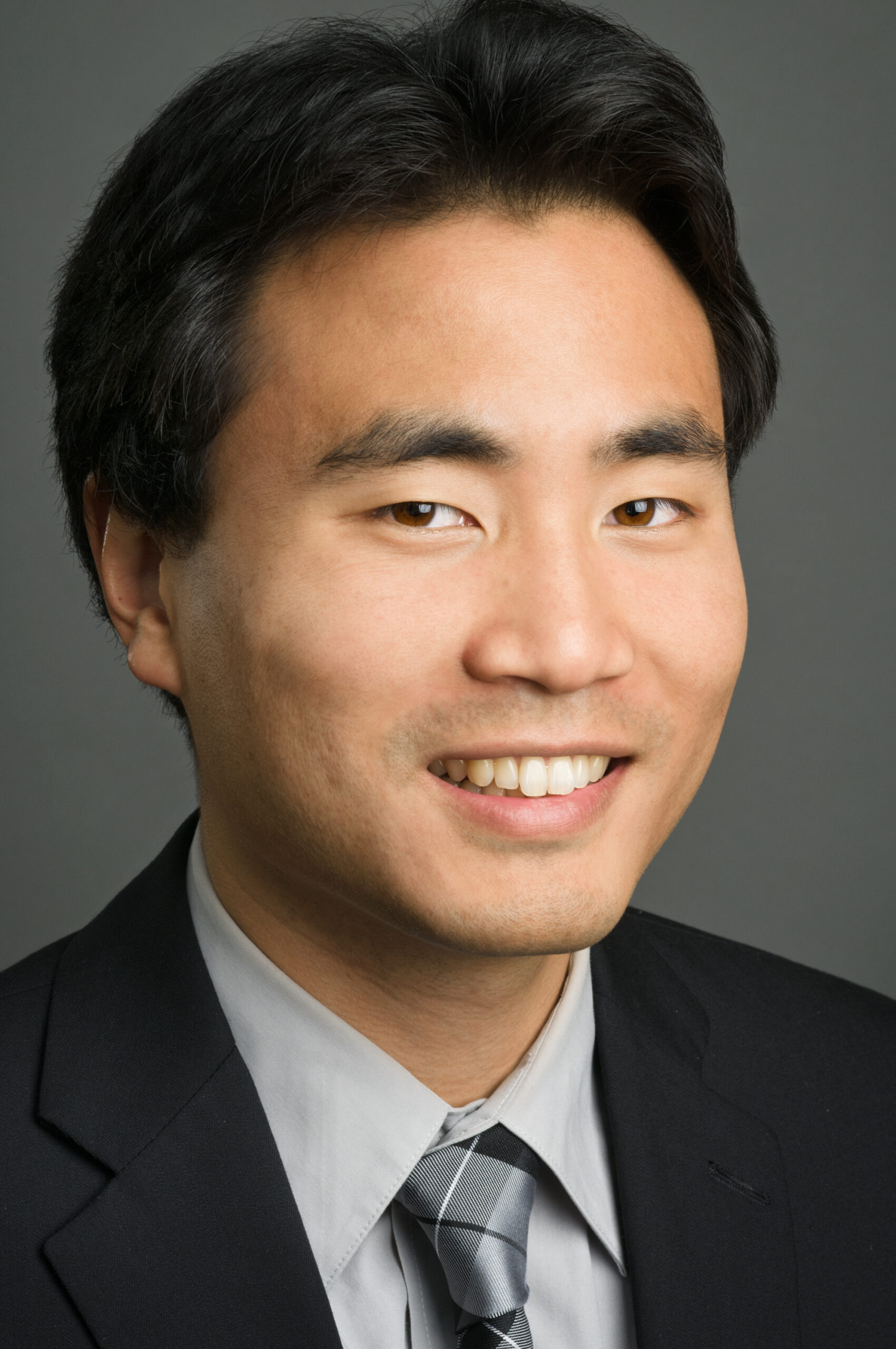
Featured Fellows
-
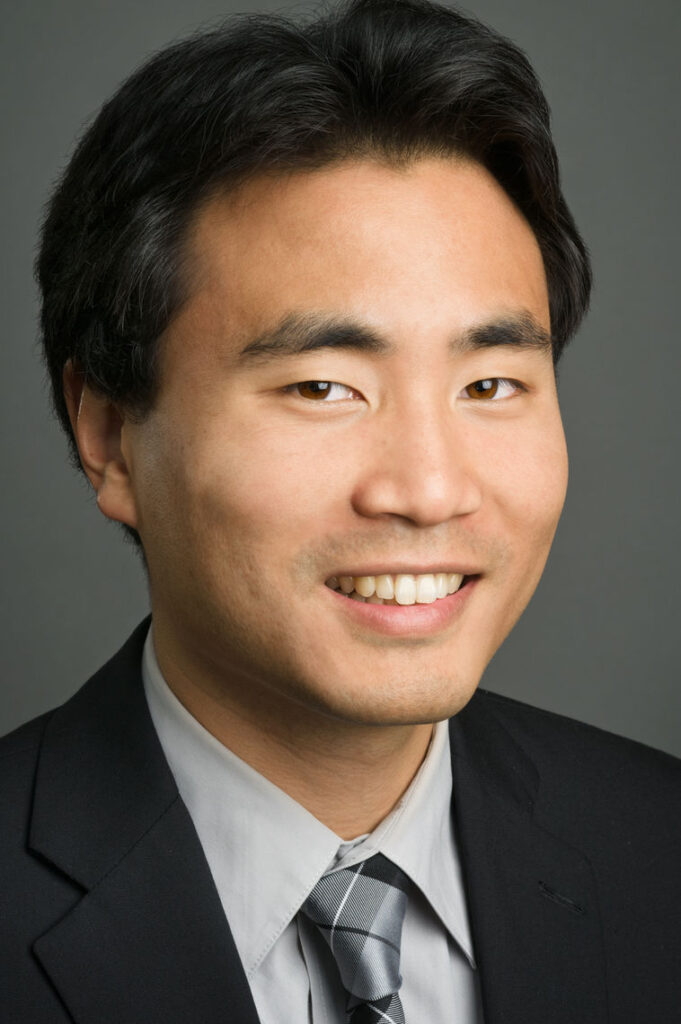
Jonathan Tsai
Assistant Professor, Harvard Medical School and Brigham and Women's Hospital
Jonathan Tsai is the child of immigrants from Taiwan and China. Fellowship awarded in 2014 to support work towards an MD in Medicine at Stanford University
-
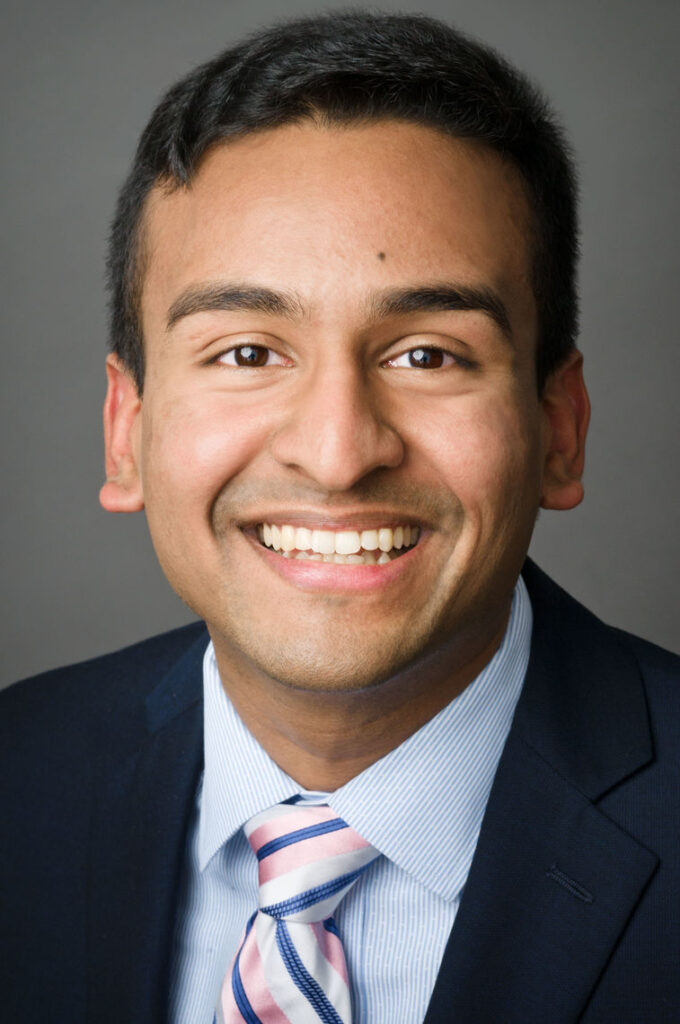
Vishwajith Sridharan
MD, Harvard University, MBA, Harvard University
Vishwajith Sridharan is an immigrant from India. Fellowship awarded in 2016 to support work towards an MD and an MBA at Harvard University
Keep Exploring
-
 Read more: The Public Voices Fellowship of PD Soros, in partnership with the Oped Project: Year Four
Read more: The Public Voices Fellowship of PD Soros, in partnership with the Oped Project: Year FourThe Public Voices Fellowship of PD Soros, in partnership with the Oped Project: Year Four
-
Read more: NOT ON MY RESUME: Ming Hsu Chen
- Fellow Highlights
- Fellows in Action
NOT ON MY RESUME: Ming Hsu Chen
-
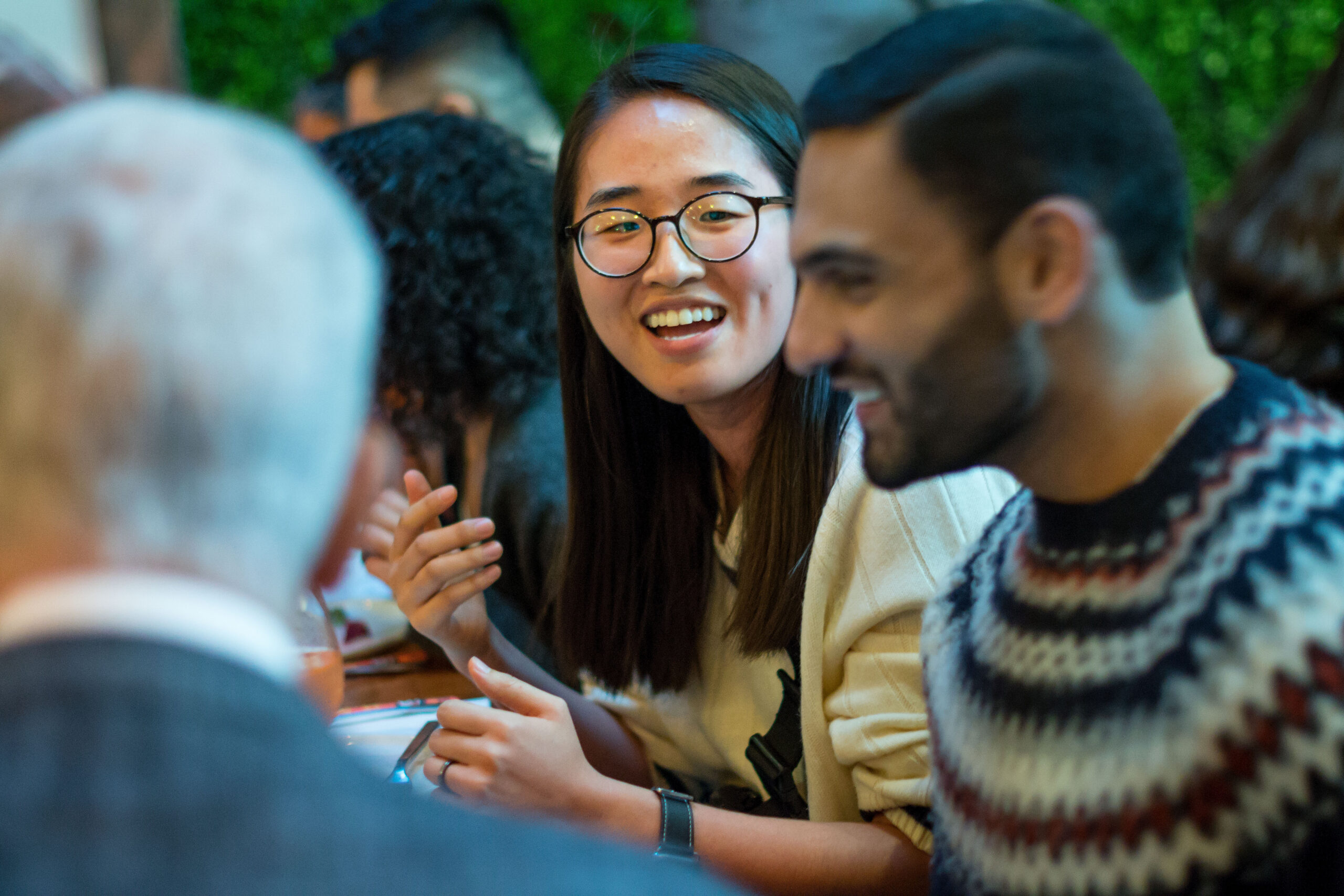 Read more: Kathy Ku Steps into Leadership as PDSFA Chair
Read more: Kathy Ku Steps into Leadership as PDSFA Chair- Board of Directors
- Fellowship News
Kathy Ku Steps into Leadership as PDSFA Chair
-
 Read more: Q&A with MD/PhD Student Silvia Huerta Lopez
Read more: Q&A with MD/PhD Student Silvia Huerta LopezQ&A with MD/PhD Student Silvia Huerta Lopez